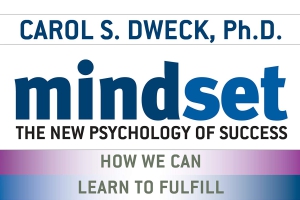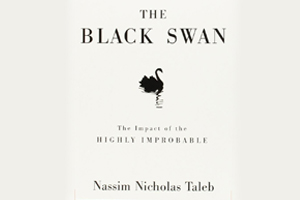Authors: Jack D. Schwager, Bruce Kovner, et al.
Do you often wonder how eminent traders and investors like Warren Buffett, Vijay Kedia, and others think? What gives them such sharp insights into the trajectory of the market and helps them consistently take winning bets is the subject of lore in the stock market ecosystem. Every major country has a number of stock traders and investors who have become the talk of the town, given their uncanny ability to take trading calls and accumulate wealth, especially over the longer term and Market Wizards by Jack D. Schwager is a compilation of insightful and engaging interviews with the greatest trading minds to have resided in the United States of America over the last few decades.
The author, Schwager, is himself a renowned trader and fund manager, and has published highly acclaimed treatises including Market Wizards (1989), The New Market Wizards (1992), Stock Market Wizards (2001) and Unknown Market Wizards (2020). Also an industry expert in futures and hedge funds, Schwager’s in-depth knowledge of the subject he tackles in Market Wizards comes to light delightfully as he offers several nuggets of investing and trading wisdom which have the power to stand the test of time. With his solid background in Economics, and a wealth of experience across investment funds and structures, as well as research, Schwager is the best person to encapsulate the knowledge of the market in a single, power-packed volume.
Featuring globally popular investors and market wizards such as Bruce Kovner, Richard Dennis, Marty Schwartz, Paul Tudor Jones and many others, Market Wizards is a treasure trove of information and insight into the internal workings of the markets, as well as the minds of these brilliant traders. While seasons may change, and the market may follow a sine wave, what remains constant is the power of rational and logical decisioning and that is what sets these stalwarts apart. And by delving into Market Wizards, you stand to gain from their experience and knowledge, thus ensuring an effective investing journey for yourself.
Key takeaways
- Before you begin trading, assess your interest in the field – determine if trading truly aligns with your interests and desires
- Align your trading strategy with your personality
- Develop a competitive edge by creating unique strategies or insights that set you apart in the trading world
- Understand the time commitment required for developing a successful trading method
- Keep trading straightforward by aiming for a process that is simple and stress-free
- Take personal responsibility and be accountable for your trading outcomes
- Embrace independent thinking
- Accept losses as part of the process
- Focus on low-risk strategies
- Learn to be adaptable and avoid habitual actions
- Trust your instincts
From the outset Schwager’s book offers readers a keen insight into how the mind of an extraordinary trader and investor functions – acting as the platform on which to base one’s own thoughts and beliefs about trading and the market at large. Once you go through this treatise and train your mind to think and process information in a fashion similar to legendary investors and traders, the market, and the trading ecosystem, will stop appearing like a foreign beast.
A trader need not be perfect
As an investor, you may assume that legendary traders have a perfect scorecard, but that is far from the truth. To be a trader and investor above par, and to accumulate lasting wealth, all your trades need not be perfect, for according to David Ryan, as long as you have a 50:50 ratio, you are doing perfectly well. Further, Larry Hite talks about the incredible fact that you can get extremely wealthy by not being perfect in your investment calls every time. Knowing that even world-renowned traders have had their weak moments is a great assurance to beginners and traders who have faced their fair share of losses. Therefore, when taking trading calls, there is no need to strive for perfection – as long as a good portion of your calls make you money, you are doing a good job. Further, given the unpredictable nature of the market, and the traders who call the market their home, it is nearly impossible to have a perfect portfolio – and acknowledging this fact gives you the freedom to take calls without worrying about being perfect.
Acknowledge your mistakes and take prompt action
It is important to understand that making mistakes in trading is normal, but what is crucial is how you respond to them. Often, traders experience a change in perspective once they have a live position in the market, as compared to when they are just observing. This shift can lead to immediate doubts about a trade. In such situations, it is usually advisable to pause and observe the trade's progress for a while. However, as commodity trader Michael Marcus advises, if it becomes clear that a trade is likely to fail, it is better to exit the position promptly. Many traders struggle with accepting an immediate loss, but the minor cost of an early exit is generally much smaller than the potential losses from holding onto a failing trade. One of the most detrimental actions a trader can take is to ignore or adjust their stop-loss to allow the trade more flexibility, as this can lead to significantly larger losses.
Be flexible while developing your personal style
While being flexible with your stop-loss in a falling market is a sure-fire way towards failure, you need to be flexible in your investment decisions and investing style. Since COVID, we have all heard about the importance of being agile and adaptable, and the same is relevant even in the field of stock investments and trading. This is because the market, as an entity, is undergoing constant change, and the only way to keep pace is by adapting your response and personal investing style in alignment with these alterations. It is imperative to understand that your investing style will need to change with the market scenarios – the strategy that stood you in good stead during a bull run may end up causing you losses in a bear market. And, even as you remain flexible, focus on developing your own personal investment style, an aspect which will help you gain an edge over the other players in the market. You must do your own homework and become independent in your thoughts and actions, to ensure a robust investment journey which is well-aligned with your unique personality.
Maximizing big opportunities & navigating tough times
In trading, the art of capitalizing on significant opportunities is crucial and seasoned traders understand the importance of being selective with their trades, as emphasized by Michael Marcus, who advises focusing on trades that align with fundamentals, technicals, and the underlying tone of the market. Gary Bielfeldt and Jim Rogers echo this sentiment, highlighting the need to fully engage when odds are in your favour and the situation is as straightforward as "shooting fish in a barrel." Recognizing these big opportunities requires keen observation and the courage to commit decisively. Staying vigilant is key, as major trades often emerge unexpectedly. When a trade shows potential, it is advisable to scale in gradually, starting with a standard position and then increasing it as the trade moves favorably. Conversely, handling the inevitable downturns in trading is equally important as losses can evoke a range of emotions, from anger to frustration, and a series of losses can intensify these feelings. Successful traders, as illustrated in the experiences shared by Marty Schwarz and Larry Hite, learn to navigate these periods effectively. One effective strategy is to engage in smaller trades following a significant loss, which helps in regaining confidence and perspective.
Never lose faith
Every trader worth their salt has experienced both thrilling victories and crushing failures and neither of these aspects should play with your faith in yourself. Sometimes, when you crack a complicated deal and make a killing, you may become over-confident and take unnecessary risks and alternatively, a major failure may set you on a path towards self-doubt. Neither of these states is ideal – you need to maintain faith in your abilities and understand the volatile nature of the market, while remaining rational and logical in the face of overwhelming victories. To quote Bruce Kovner, renowned trader and investor – “Making your best judgement, being wrong, making your next best judgement, being wrong, making your third best judgement, and then doubling your money” is the name of the game. When you lose faith in yourself, you may close out profitable positions before the time is right, leading to a notional loss and alternatively, a euphoric amount of confidence may prompt you to stick with a loss-making trade in the hope of a turn-around that never takes place. Being professional with trading, wherein you consider the practice as a job or a business; is the best way to stay in the game and avoid quitting when the times are tough. A casual approach to trading has never worked for anyone – you need to show diligence and commitment if you wish to rise to the top.
Schwager’s treatise teaches us a very important lesson – trading and investing is like any other career or profession – you need to be sure about whether or not it is where you want to be, you need to know the game and be flexible with your approach, and finally, you need to keep trying even when you face failure and difficult situations. When you start looking at the market in this new light, you will find yourself emulating well-known market wizards in your own investing and trading journey.
The beauty of this book is that the lessons it espouses go beyond just mere trading and direct investing. We can go so far as to say that they apply to nearly any form of investment decision making be it while directly trading in equities or investing via mutual funds. In the case of the latter, it can be particularly effective. While mutual funds as a vehicle enable you to invest in a wide range of asset classes and strategies, in order to truly benefit from them you need to keep your behavioural biases aside and create a mutual fund portfolio that best reflects your unique needs and risk profile. Interestingly, if you invest in mutual funds via the Systematic Investment Plan (SIP) route then the risk stemming from many of these biases can be mitigated.
An investor education initiative by Edelweiss Mutual Fund.
All Mutual Fund Investors have to go through a onetime KYC process. Investor should deal only with Registered Mutual Fund (RMF). For more info on KYC, RMF and procedure to lodge/redress any complaints – please visit on https://www.edelweissmf.com/kyc-norms
MUTUAL FUND INVESTMENTS ARE SUBJECT TO MARKET RISKS, READ ALL SCHEME RELATED DOCUMENTS CAREFULLY.
Trending Books
MUTUAL FUND INVESTMENTS ARE SUBJECT TO MARKET RISKS, READ ALL SCHEME RELATED DOCUMENTS CAREFULLY.













